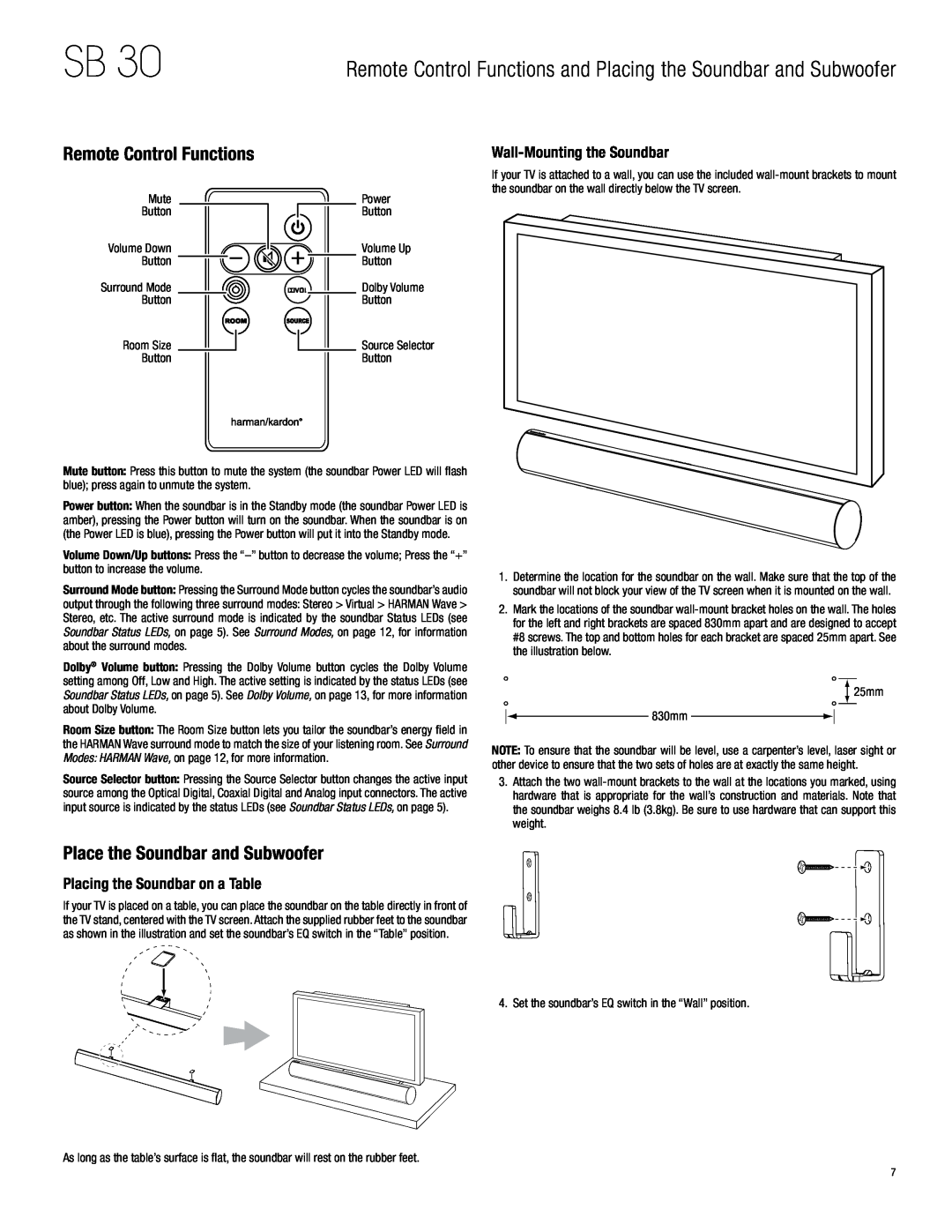
SB 30
Remote Control Functions and Placing the Soundbar and Subwoofer
Remote Control Functions
Mute
Button
Volume Down
Button
Surround Mode
Button
Room Size
Button
Power
Button
Volume Up
Button
Dolby Volume Button
Source Selector Button
Wall-Mounting the Soundbar
If your TV is attached to a wall, you can use the included
Mute button: Press this button to mute the system (the soundbar Power LED will flash blue); press again to unmute the system.
Power button: When the soundbar is in the Standby mode (the soundbar Power LED is amber), pressing the Power button will turn on the soundbar. When the soundbar is on (the Power LED is blue), pressing the Power button will put it into the Standby mode.
Volume Down/Up buttons: Press the
Surround Mode button: Pressing the Surround Mode button cycles the soundbar’s audio
output through the following three surround modes: Stereo > Virtual > HARMAN Wave > Stereo, etc. The active surround mode is indicated by the soundbar Status LEDs (see Soundbar Status LEDs, on page 5). See Surround Modes, on page 12, for information about the surround modes.
Dolby® Volume button: Pressing the Dolby Volume button cycles the Dolby Volume setting among Off, Low and High. The active setting is indicated by the status LEDs (see Soundbar Status LEDs, on page 5). See Dolby Volume, on page 13, for more information about Dolby Volume.
Room Size button: The Room Size button lets you tailor the soundbar’s energy field in the HARMAN Wave surround mode to match the size of your listening room. See Surround Modes: HARMAN Wave, on page 12, for more information.
Source Selector button: Pressing the Source Selector button changes the active input source among the Optical Digital, Coaxial Digital and Analog input connectors. The active input source is indicated by the status LEDs (see Soundbar Status LEDs, on page 5).
1.Determine the location for the soundbar on the wall. Make sure that the top of the soundbar will not block your view of the TV screen when it is mounted on the wall.
2.Mark the locations of the soundbar
25mm
830mm
NOTE: To ensure that the soundbar will be level, use a carpenter’s level, laser sight or other device to ensure that the two sets of holes are at exactly the same height.
3.Attach the two
Place the Soundbar and Subwoofer
Placing the Soundbar on a Table
If your TV is placed on a table, you can place the soundbar on the table directly in front of the TV stand, centered with the TV screen. Attach the supplied rubber feet to the soundbar as shown in the illustration and set the soundbar’s EQ switch in the “Table” position.
4. Set the soundbar’s EQ switch in the “Wall” position.
As long as the table’s surface is flat, the soundbar will rest on the rubber feet.
7
